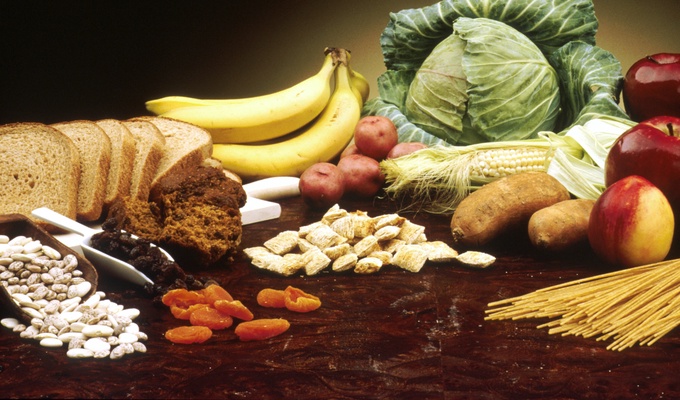Complex carbohydrates are carbohydrates composed of long chains of sugar molecules, known as polysaccharides. These include both starches and fiber, which are found in foods such as whole grains, legumes, vegetables, and some fruits. Complex carbohydrates are distinguished from simple carbohydrates, which consist of shorter chains or single sugar molecules.
Nutrition
Complex carbohydrates are an essential part of a balanced diet. They provide a sustained source of energy because they are broken down more slowly by the body compared to simple carbohydrates. This slow digestion leads to a gradual release of glucose into the bloodstream, helping to maintain stable blood sugar levels. Foods rich in complex carbohydrates are also typically high in dietary fiber, which is important for digestive health. Dietary fiber is not digested by the body, but aids in regulating bowel movements, lowering cholesterol levels, and promoting satiety, which can help in weight management.
Food Chemistry
Complex carbohydrates influence the texture, structure, and stability of various foods. Starches, one of the main types of complex carbohydrates, undergo processes like gelatinization and retrogradation during cooking and cooling, which are critical for creating the desired consistency in baked goods, sauces, and other prepared foods.

